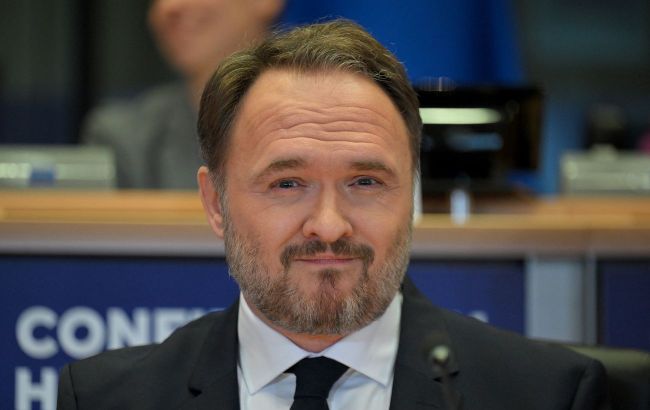EU aims to cut all energy ties with Russia
 Dan Jørgensen (Getty Images)
Dan Jørgensen (Getty Images)
The new EU Energy Commissioner Dan Jørgensen considers it his top priority to develop a plan to permanently sever all EU energy ties with Russia, Politico reports.
Jørgensen warned that the EU is failing in its years-long campaign to wean itself off Russian fuel and needs a plan to get things back on track.
He pointed to the EU's growing purchases of Russian liquefied natural gas as a particular problem. In addition, five EU countries still depend on Russia for nuclear fuel.
“To have been able to bring down our dependency to such an extent that we have is actually quite an accomplishment,” Jørgensen said.
But “it’s obvious to everybody that something new needs to happen because … now it's beginning to go in the wrong direction,” he added, saying he would present “a tangible roadmap that will include efficient tools and means for us to solve the remaining part of the problem."
Jorgensen said his plan would focus “on gas primarily, but also oil and nuclear” and would be implemented within the first 100 days of taking office, effectively giving him a mid-March deadline.
The plan is the next step in a major effort by the EU to change the way it provides for 450 million people after Russia invaded Ukraine in 2022. The bloc has already imposed a complete ban on maritime exports of coal and oil from Moscow while cutting its dependence on pipeline gas supplies by about two-thirds.
But in recent months, efforts have stalled. According to the commodities platform Kpler, the EU is expected to import about 10% more LNG from Russia in 2024 than in 2023.
Putin's friends
As Politico notes, any plan to wean off Russian energy by 2027, the deadline set by the bloc after the war began, is likely to be strongly opposed by countries that are still heavily dependent on imports from Moscow. In particular, Hungary and Slovakia-led by Russia-friendly leaders Viktor Órban and Robert Fico-have historically opposed new energy restrictions.
Jørgensen referred to his experience as Danish climate minister in 2022 when he attended eight emergency summits of EU energy ministers when the bloc faced a massive gas price crisis.
He said these talks gave him “some experience in collaborating with colleagues … taking into account [that] there are different circumstances.”
He will also have significant political support for his pressure. Just this week, 10 EU capitals jointly called for sanctions against Moscow's nuclear and LNG sectors.
New plan
Jørgensen's proposal is also likely to come just weeks after the expiration of a long-term gas transit agreement that allows mostly Central European countries to continue importing Russian pipeline gas through Ukraine. While several countries are discussing potential workarounds to maintain gas supplies, Jørgensen said he expects the agreement to expire.
“We are preparing for the situation that it will finish and … it’s one more reason why it’s important for us to have this roadmap very soon,” he said, reiterating the European Commission's long-standing position, with the agreement of Moscow and Kyiv in 2019.
The EU's relationship with the Donald Trump-led United States will also play a role in Jorgensen's energy work, given that Europe has relied on the United States for LNG as it has moved away from Russia. The US is now the second-largest gas supplier to the bloc.
Jørgensen said that LNG imports "certainly one of the first things we have to discuss” with the new US administration.
European Commission President Ursula von der Leyen has already suggested that the EU could buy more American fuel to avoid a potential trade war with the arrogant Republican leader, who has vowed to end a pause in issuing new US LNG export permits.
“We need to be mindful that we could not have done the decrease in dependency from Russia without energy from … the US,” Jørgensen said. “They really have been our friends and I hope, of course, that we will continue to be friends.”
According to the European Commission, the cessation of Russian natural gas transit through Ukraine on January 1, 2025, has already been factored into prices.
Given that the world produces more than 500 billion cubic meters of LNG annually, the replacement of about 14 billion cubic meters of Russian gas transiting through Ukraine should have a minor impact on natural gas prices in the EU, the EC said.

